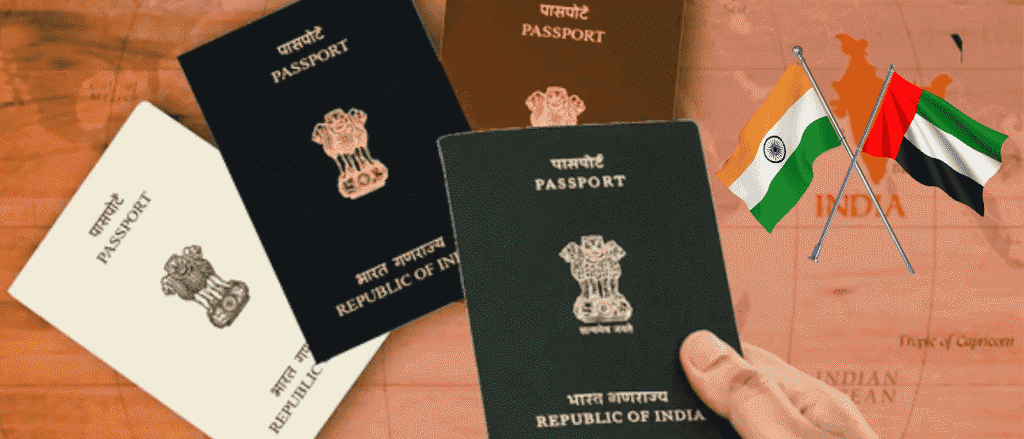If you’re an Indian living in the UAE, listen up. There are some important updates to passport rules that you should be aware of. The Indian government has introduced new regulations to enhance security and protect personal information. These changes might not affect everyone, but they’re still crucial to keep in mind – especially when it comes to renewing or applying for a new passport, and to avoid any unnecessary issues with your UAE Visa in the future. Keep reading to get all the important details you need to know.
Also read: New Guidelines Issued For Indians Travelling To The UAE – Violators To Be Denied Boarding
1. Passports Now Have A Colour Code
India has introduced a colour-coded passport system, making it easier to identify different categories of travelers:
- White – Issued to government officials
- Red – Reserved for diplomats
- Blue – The standard passport for ordinary citizens
If you’re an expat in the UAE, chances are you’ll continue using the blue passport.
2. Birth Certificate Is Now A Must-Have
This one is crucial for new and upcoming parents to know. For anyone born on or after October 1, 2023, a birth certificate is now the only valid proof of birth when applying for a passport. Other documents that were previously accepted will no longer be considered.
This birth certificate must be issued by:
- The Municipal Corporation
- The Registrar of Births and Deaths
- An official body recognised under the Indian Registration of Births and Deaths Act, 1969
3. Residential Address Will No Longer Be Printed
In a move to protect privacy, the passport will no longer display the holder’s residential address on the last page. Instead, this information will be embedded in a barcode, which immigration officers can scan when needed. This change ensures that personal details remain secure while still being accessible to authorities when required.
4. Parents’ Names Are No Longer Required
Previously, Indian passports had a section where applicants had to include their parents’ names on the last page. This is no longer necessary. The decision was made to protect individual identity and prevent complications related to family status.
What This Means For NRIs In The UAE
If you’re an Indian expat in the UAE, these passport changes could impact future applications, renewals, or travel plans. Staying updated on these new rules will help you avoid any last-minute surprises when dealing with UAE visas or immigration procedures.
Make sure to check your passport details before any upcoming travel – being informed now can save you a lot of time and hassle later!














